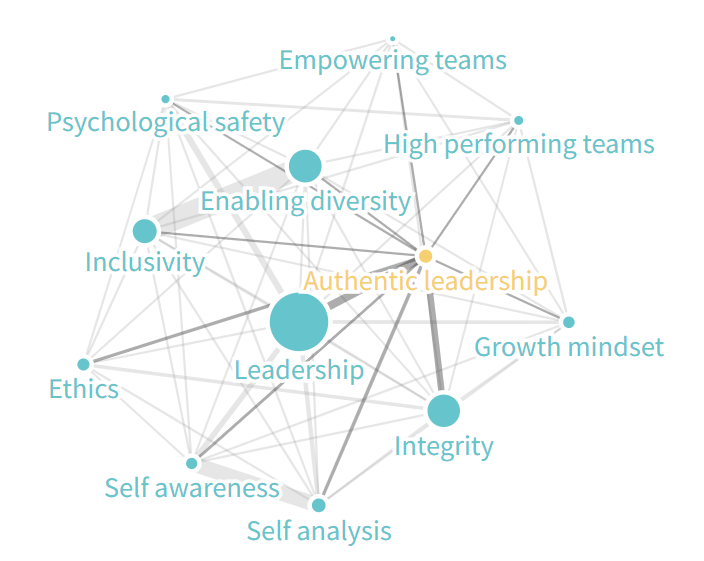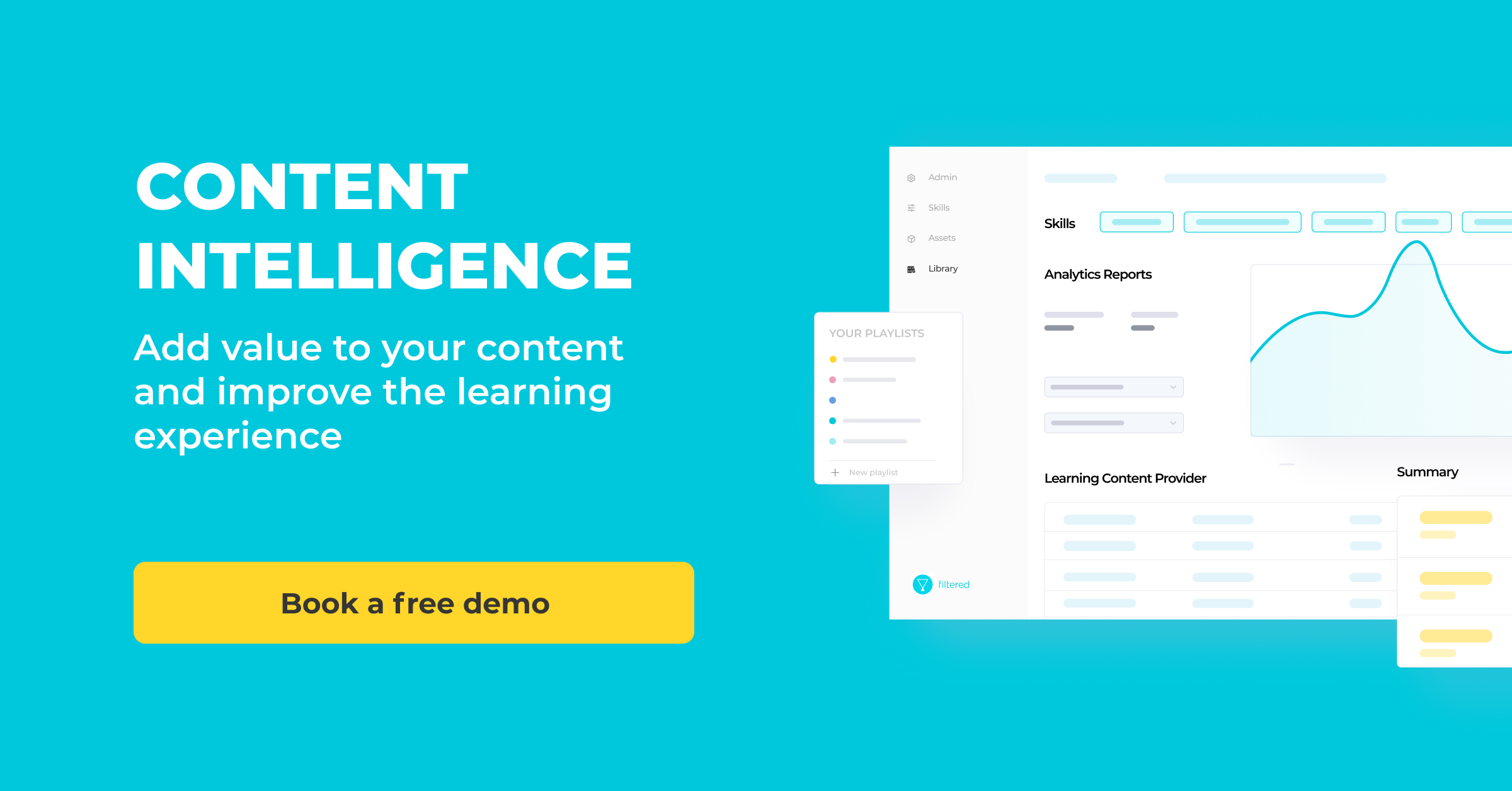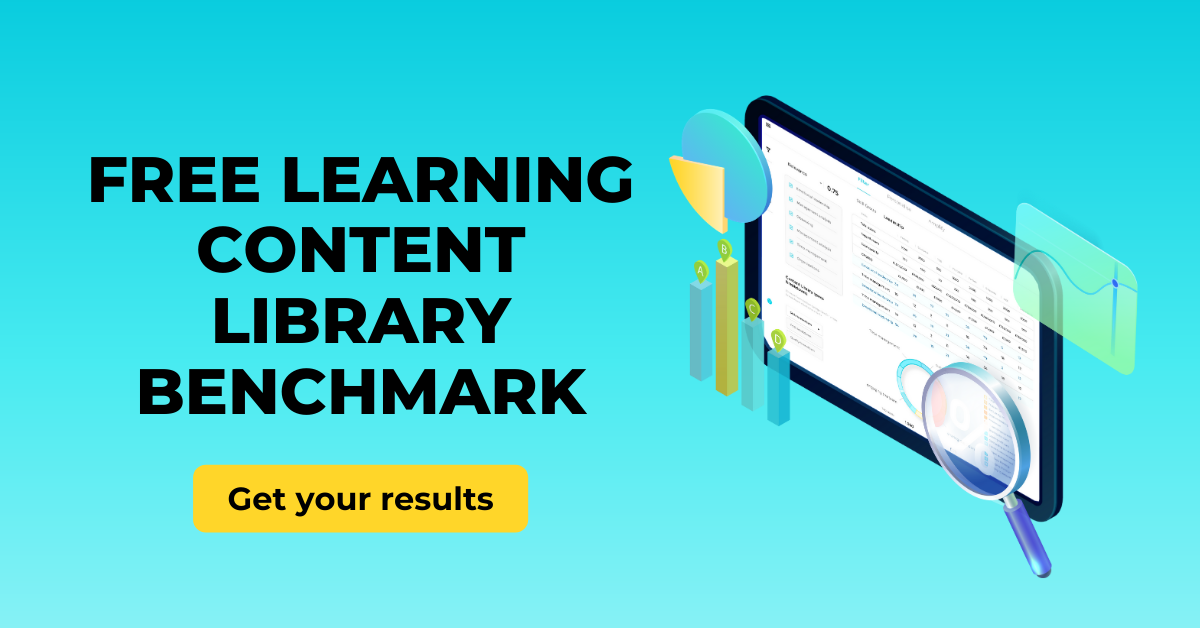Authentic leadership
A long time ago in a galaxy far far away, the charming intrusion of family life into a live news interview was unusual enough to achieve global virality. Since the ‘rona, those of us working from home have not so much been bringing ourselves to work, as having our home-lives kick open the door and dance around the office.
But beyond the fridge magnets and Zoom-bombing pets, what does it mean to lead authentically, and why should we want to? This Skill Spotlight focuses on the whys and hows of ‘Authentic leadership’.
🔦 SKILLS SPOTLIGHT is our (semi) monthly series where we dive deep into a different skill based on the insights generated by our Content Intelligence tech and skills framework projects with our clients. See past spotlights.
Let’s start with a definition — OUR DEFINITION — of skills and authentic leadership.
Skill definition
Our Skills Palette definition of Authentic leadership is:
Being one’s true self in a leadership role, acknowledging one’s own strengths and weaknesses and challenges of the role, rather than seeking to project an unrealistic leadership ideal.
Adjacent skills
We use asset libraries to deduce correlations between skills: skills are often covered together across a wide variety of articles, courses, videos, we infer a connection. This can be a useful tool in spotting gaps or overlaps and in suggesting content associations, for example when building playlists.
Running this exercise for Authentic leadership suggests some obvious associations around self-awareness and integrity, but also exposes links with psychological safety and empowering teams.

Note: We unpack the Filtered definition of skills in a bit more detail here.
As we dig deeper into “authentic leadership,” we uncover motivation (Why is authentic leadership important? Why should you care about it?) and proficiency building (How do you best practice it?).
Let’s look at both motivation and proficiency in a bit more detail:
Motivation
Authenticity leads to deeper connections with others, with obvious emotional and professional benefits in leadership roles. In her classic TED talk outlining her research into authenticity, Brené Brown describes how a feeling of worthiness despite (or even because of) vulnerability is what differentiates people who feel connected from those who feel isolated.
Professor Tomas Chamorro-Premuzic’s article can be read either as a counterpoint to the prevailing view that authenticity is a characteristic of effective leadership, or perhaps simply as drawing the distinction between authenticity and a narcissistic expectation that the world needs to fit around your flaws.
Proficiency
This Hubsparticle proposes a framework for developing and sustaining authenticity as a leader,and gives some pointers that acknowledge the difficulties.
This LinkedIn Learning course by Ken Blanchard on Servant Leadership includes advice on the practicalities of implementing the approach in an organisation, and of building authenticity into your leadership approach as a habit.
In his book Good to Great, Jim Collins examines the characteristics that distinguish companies that transformed steady performance into stellar results from comparators that continued to drift. One such differentiator was leaders who didn’t act the strong-leadership the stereotype: humble but quietly determined, focused on the company not their own style or legend. This GetAbstract summary of the book paints the picture of how these atypical leaders deliver results.
How Content Intelligence simplifies this process
Our Content Intelligence solution helps your team make data-driven learning content procurement and curation decisions.
We evaluate content libraries against an objective skills framework for your organisation.
Content Intelligence turns skill definitions into lists of accurately tagged content that reads the content itself - not just the title. The expertise that allows one curator to select 10 of the best pieces of content for a skill is scaled to 100,000 assets from the world’s leading websites and content libraries.
The technology comes pre-programmed with 100 skills in eight key capability areas, or you can add skills from your own framework, which we can help you design. You then choose your focus skills and the content vendors you want to include. The system instantly produces an analysis of the relevance of those vendor libraries and every asset within them against every skill.
Stay tuned for our next instalment of the SKILLS SPOTLIGHT.
While you are waiting, let’s talk about how Filtered can help get the best return on your L&D spend by filtering the right content for the skills your people really need.



